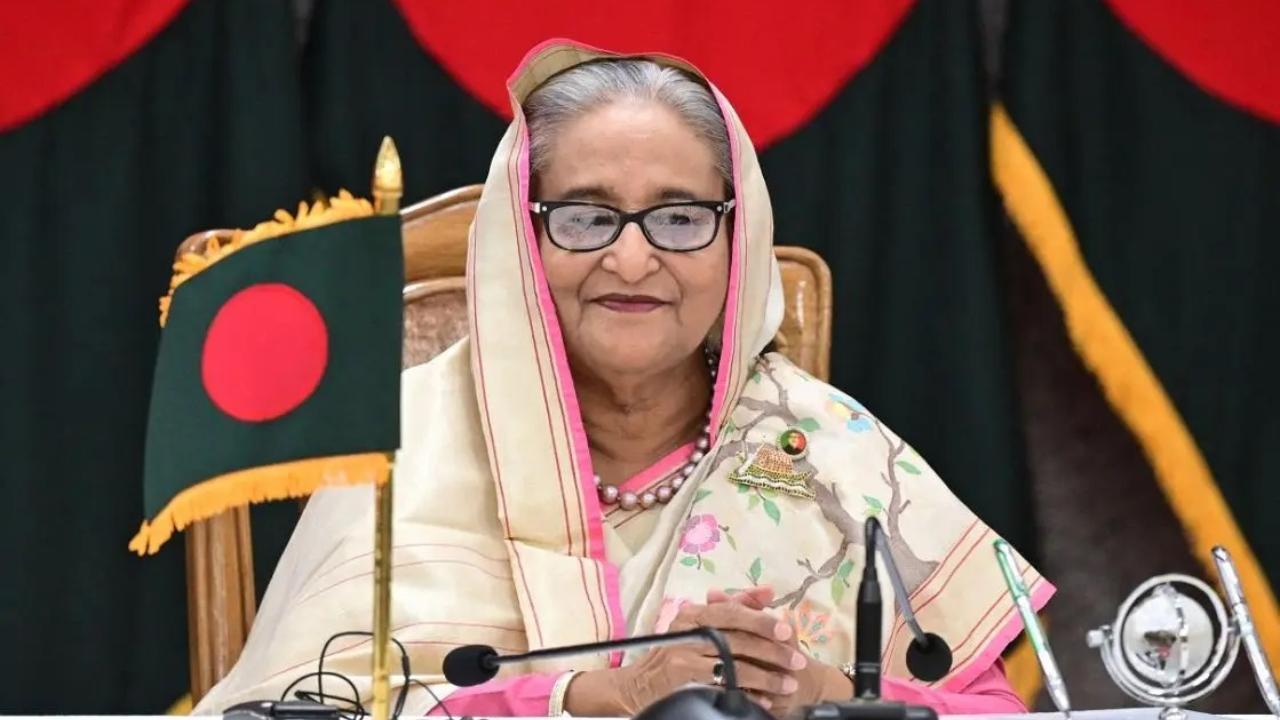Here are five key dates explaining how the protests toppled the government in the South Asian nation of about 170 million people

Sheikh Hasina resigns as PM, leaves Bangladesh after days of unrest
Protests in Bangladesh that began as student-led demonstrations against government hiring rules in July culminated Monday in the prime minister fleeing and the military announcing it would form an interim government
ADVERTISEMENT
At least 300 people were killed in more than a month of deadly protests that ended the autocratic rule of 76-year-old Prime Minister Sheikh Hasina.
Here are five key dates explaining how the protests toppled the government in the South Asian nation of about 170 million people.
- July 1: Blockades begin -
University students build barricades blocking roads and railway lines to demand reforms of a quota system for sought-after public sector jobs.
They say the scheme is used to stack the civil service with loyalists of Hasina's ruling Awami League.
Hasina, who won a fifth term as prime minister in January after a vote without genuine opposition, says the students are "wasting their time".
- July 16: Violence intensifies -
Six people are killed in clashes, the first recorded deaths in the protests, a day after bitter violence when protesters and pro-government supporters fought in Dhaka with sticks and hurled bricks at each other.
Hasina's government orders the nationwide closure of schools and universities.
- July 18: PM rebuffed -
Students reject an olive branch from Hasina, a day after she appeals for calm and vows that every "murder" in the protests would be punished.
Protesters chant "down with the dictator" and torch the headquarters of state broadcaster Bangladesh Television and dozens of other government buildings.
The government imposes an internet blackout.
At least 32 people are killed and hundreds are wounded in clashes, which continue in the following days despite a round-the-clock curfew and the deployment of soldiers.
- July 21: Supreme Court verdict -
Bangladesh's Supreme Court, seen by critics as a rubber stamp for the will of Hasina's government, rules the decision to reintroduce job quotas was illegal.
But its verdict falls short of protesters' demands to entirely abolish reserved jobs for children of "freedom fighters" from Bangladesh's 1971 independence war against Pakistan.
- August 5: Hasina flees -
Hasina flees Dhaka by helicopter as thousands of protesters storm her palace, with millions on the streets celebrating, some dancing on the roof of armoured cars and tanks.
Her dramatic departure comes a day after the deadliest day of protests in which at least 94 people were killed countrywide, many in battles with her supporters.
In several cases, soldiers and police did not intervene to stem the protests, unlike during the past month of rallies.
Bangladesh's army chief General Waker-Uz-Zaman, says in a broadcast to the nation on state television Hasina had resigned and the military would form an interim government.
Also read: Delhi Police say security beefed up at Bangladesh High Commission
This story has been sourced from a third party syndicated feed, agencies. Mid-day accepts no responsibility or liability for its dependability, trustworthiness, reliability and data of the text. Mid-day management/mid-day.com reserves the sole right to alter, delete or remove (without notice) the content in its absolute discretion for any reason whatsoever
 Subscribe today by clicking the link and stay updated with the latest news!" Click here!
Subscribe today by clicking the link and stay updated with the latest news!" Click here!







